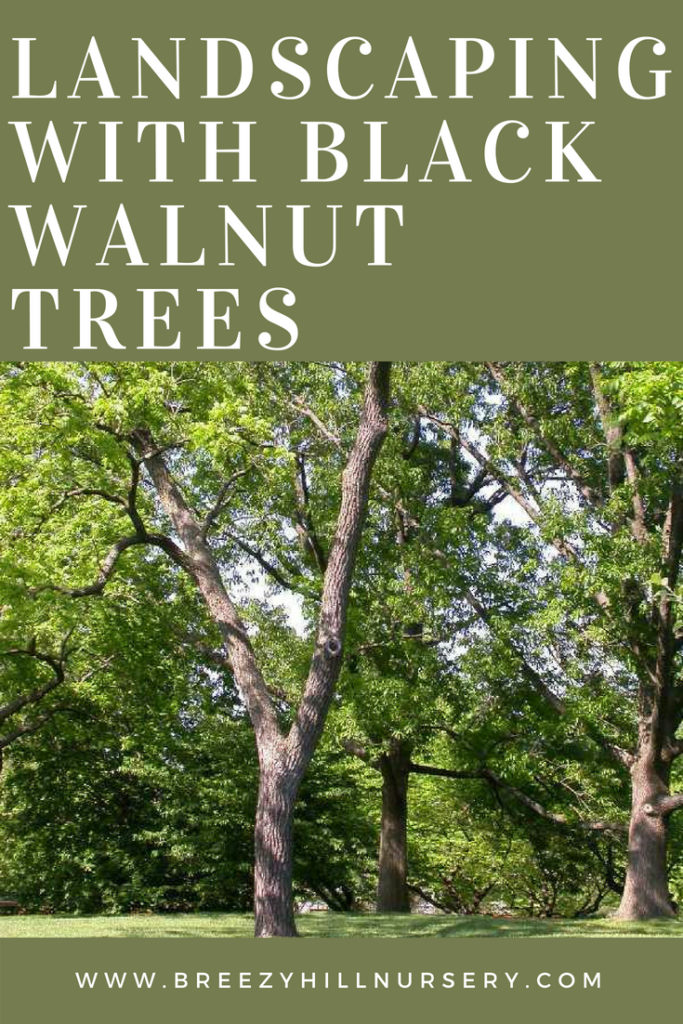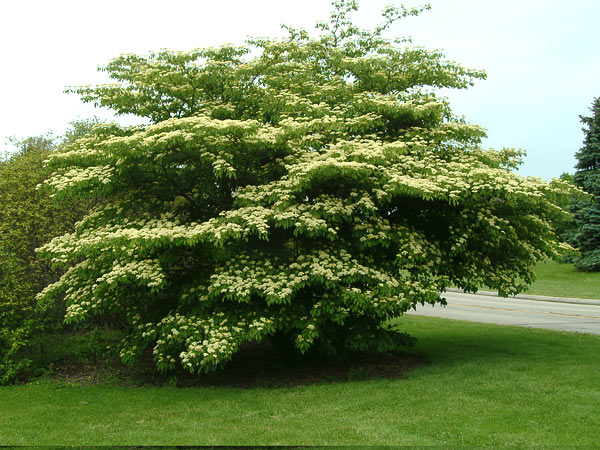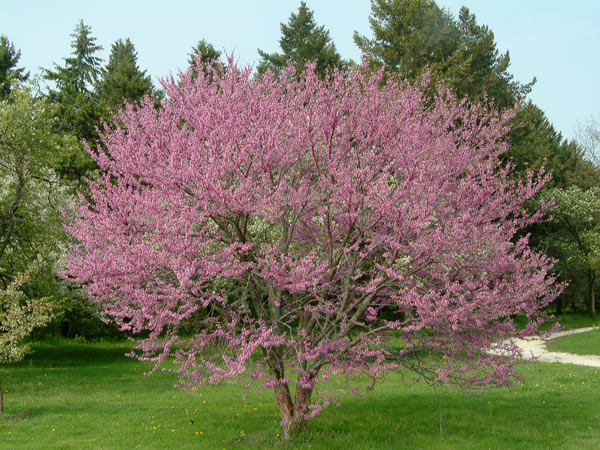
Landscaping With Black Walnut Trees
Black Walnuts trees are primarily grown for their valuable hardwood lumber. Even though this tree may have commercial value, it can cause many problems and annoyances in a home landscape. The large and abundant fruit is considered messy and unwanted and makes landscaping with black walnut trees undesirable to some. This mess means that only some landscapers, know how to effectively deal with it. More importantly, Black Walnut trees produce a chemical called juglone that can kill or damage some plants.
Juglone is primarily found in the roots and the nut hulls of the Black Walnut trees. Additionally, there is a small amount that is produced in the leaves. In fall when the leaves and the nuts sit on the ground, they break down and release juglone into the soil. The toxicity level in the soil is highest under the drip line of the tree but can extend as far away as 60 feet away from the trunk of the tree. Once a Black Walnut tree dies or is removed, the roots continue to decay and release toxins for several years.
Juglone sensitive plants will have symptoms of wilting, yellow leaves, stunted or slow growth, and eventual death. Since all of the symptoms are common with general stress, insect, and disease problems, juglone toxicity is commonly miss-diagnosed.
Plants with sensitivity to juglone should be kept away from Black Walnut trees. If they must be located near a tree, they should be planted in a raised bed. In addition, particular care should be taken to remove any nuts, leaves, twigs, and bark that fall from the tree.
Plants with a high sensitivity to juglone:
Annuals and Vegetables: Pepper, petunia, tomato, and potato.
Perennials: Columbine, Asiatic lily, peony, and baptisia.
Evergreens and Shrubs: Red Chokeberry, Potentilla, Aster, Rhododendron, Cotoneaster, Lilac, Privet, Some Viburnum, Yew and, Pines.
Trees: Silver Maple, Malus Crabapple), Betulus(White Birch), Picea abies (Norway Spruce), Celtis occidentalis (Hackberry), Pinus strobus (White Pine) and, Larix (Larch).
Plants with tolerance to juglone:
Perennials, Spring Bulbs, and Annuals:
Ajuga (Bugleweed), Geranium (Perennial Geranium), Alcea rosa (Hollyhock), Rudbeckia (Black-eyed Susan), Aster, Sedum, Astilbe, Solidago (Goldenrod), Athyrium (Lady Fern), Hemerocallis (Daylily), Campanula (Bellflower), Heuchera (Coral Bells), Deicentra spectabilis (Bleeding Heart), Iris sibirica (Siberian Iris), Monarda (Bee Balm), Phlox paniculata (Garden Phlox), Muscari (Grape Hyacinth), Veronica (Speedwell), Narcissus (Daffodil) and Zinna.
Evergreens, Vines and, Shrubs:
Juniperus chinensis (Chinese Juniper), Forsythia, Juniperus virginiana (Red Cedar (Juniper)), Hibiscus prolificum (Rose of Sharon), Thuja (Arborvitae), Lonicera (Honeysuckle), Tsuga Canadensis (Eastern Hemlock), Physocarpus opulifius (Ninebark), Clematis, Ribes (Currant), Lonicera (Honeysuckle Vine), Rosa (Wild Rose), Chionathus virinicus (Fringe Tree), Viburnum dentatum (Arrowwood Viburnum), Conrus alternifolia (Pagoda Dogwood), Euonymus and, Viburnum prunifolium (Blackhaw Viburnum).

Pagoda dogwood (Cornus alternifolia) is tolerant of Juglone.
Trees:
Acer plamatum (Japanese Maple), Carpinus caroliniana (American Hornbeam), Acer rubrum (Red Maple), Cercis canadensis (Redbud), Acer saccharum (Sugar Maple), Crataegus (Hawthorn), Aeculus glabra (Ohio Buckeye), Amelanchier (Serviceberry), Hamamelis (Witchhazel), Liriodendron tulipifera (Tulip Tree), Morus (Mulberry), Betula Nigra (River Birch), Fagus grandifolia (Beech), Gleditisa triacanthos (Honeylocust), Quercus alba (White Oak), Quercus rubra (Red Oak), Rhus typhina (Staghorn Sumac) and, Ulmus americana (American Elm).

The Redbud (Cercis canadensis) is another tree that is tolerant of Juglone.
There are many ways to use black walnut trees.
NOTE: Any of our sales associates here at Breezy Hill Nursery would be happy to answer your questions about landscaping with black walnut trees. Call us at (262) 537-2111.
If you have gardening questions please call or stop by our garden center.
You might also enjoy this post about trees.

Comments are closed.